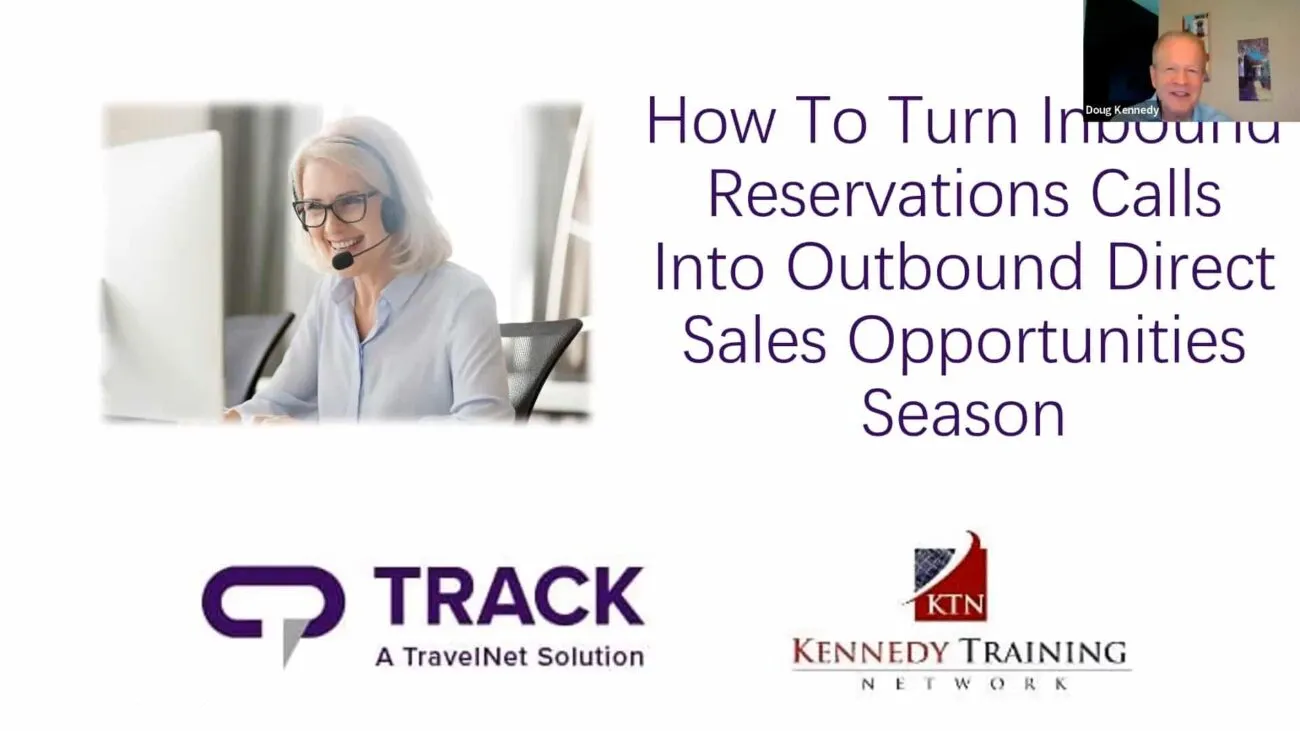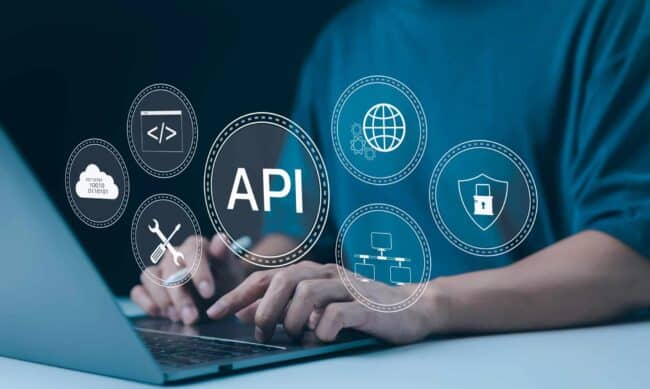How To Turn Inbound Reservations Calls Into Outbound Direct Sales Opportunities

Before we delve into this month’s topic, consider this question: what is the cost of a voice inquiry? Think about the direct “hard” costs such as, pay-per-click ads, email campaigns, retargeting efforts on Google, and the commissions spent to have a “billboard” presence on OTA’s. Then of course the indirect “soft” costs such as website development and maintenance, payroll and office for your reservations team, and the investment in your PMS/CRM investment.
Next, I ask that you consider the potential value of an inbound reservations call, which can be calculated according to this formula: ADR x ALS (+ add-ons) = Revenue Potential Of Each Call.
Yet with all the “admin” type work that reservations staff deal with in today’s era, phone calls sometimes feel like interruptions! It may be important to remind your team that the hottest leads they will ever get are inbound voice leads. Also, it may be important to remind your marketing and distribution leaders that the reservations team is also involved with direct website inquiries. For proof, try this exercise.
- Pull 10 or more reservations that were booked directly at your website.
- Find the phone number provided and then look that up in your call log in Track Pulse or your inbound 800 provider.
Chances are that you will find that most of those who book online have called either prior to or following booking online.
By turning inbound calls into outbound leads, your team can make sure not to lose callers’ business to another company or a different destination, or lose revenue in the form of commission to an OTA.
While the primary objective is always to get them to book now, it is also important to realize that there are reasons why some callers are simply not yet ready. For example, callers are much more likely to be hesitant to book on their first call when they are planning longer stays, booking for larger parties with lots of people involved in the decision, and/or booking accommodations with restrictive deposit and cancellation. Most of all, the more emotionally involved they are with their travel plans the more likely they will hesitate to commit.
Traditionally, marketing and distribution leaders have viewed the role of reservations agents as being a reactive one, as in “sales fishing” and living off inbound callers who nibble on the digital bait. Smart leaders are migrating their teams to a “sales hunting” mindset, in which every call, every email inquiry, and every inbound chat or OTA IM is viewed as a potential sales lead to proactively hunt down.
To succeed as a sales hunter, your team will of course need a system such as Track Pulse that makes it easy to:
- See pop-up text box in which to enter notes and details from the conversation (which will also be seen if they call-back.)
- Trace the contact on a “lead stream.”
- Briefly read a summary of previous correspondence in order to personalize the messaging.
If you have not yet been able to get funding for Track Pulse, at least get in the game with a basic Excel or Google Sheets form.
If you are just getting your team started with the sales hunting model, remind them that if all we do is find out dates, number of people, bedding requirements, etc., we are treating the role of reservations sales as a tech support job to assist callers, as if we were a website search help desk. Consider sharing this Doug Kennedy mantra:
It is NOT our job simply help them find what is available. It IS our job to help them decide!
Here are some training tips:
Ask the right questions to narrow down the options vs. listing what is available.
-
- When callers say: “Can you tell me what you have available for these dates?” respond with, “Let me ask you a few questions so I can help you find the best options.”
- Ask questions specific to the call story you are hearing. Here are a few examples:
- “Which is more important, location or view?”
- “Would you consider something just off the beach?” (Or away from the ski lift?”
- “Would you consider two homes close together vs. the larger option?”
- “How do those sound so far?”
- “Are you looking for something more upscale or economical?”
- “Is there something you’re looking for that I’ve not yet mentioned?” or, “Can you tell me more about what you have in mind?”
What to say to get the caller to provide a phone and email for follow-up
Of course, to be able to “hunt” after the call, you will need to get an email and phone number. Here are some tips to encourage them to share these.
- Do NOT ask, “Would you like me to email those to you?” or, “Did you want to give me your email?”
- Instead say: “Okay. Let me grab your email address so I can send you these links along with my direct contact information.”
Getting the email is the most important task but try also to get their phone number and implied permission to call to follow-up.
- Do NOT say: “Would you like me to call you to follow-up?”
- Instead say: “Super. I’ll shoot you over an email with my direct contact information. I’ll also check back with you to see what questions you have and what else we can do. May I have the best phone number…”
Personalize the follow-up messaging: Be persistent but not pushy
- Start all follow-up calls and emails by restating something specific you learned about “the story” behind their plans…
- “It was wonderful to hear about the plans for your (insert special reason for travel…)”
- End all emails and calls by expressing interest and offering personal assistance.
- “Again, my name is Doug with in-house reservations. Let us know what else we can do to assist you with planning this important trip.”
- You should generally follow-up at least two additional times:
- One to three calendar days after the initial inquiry, depending on their “story.”
- Three more days after that, unless they state a longer decision-making timeframe.
- Make at least one phone call. When calling: Start by introducing yourself, your company to refresh their memory.
- Do NOT say: “Hi, is this Douglas?”
- Instead say: “Hello Douglas, this is Cindy from Brand X Resort, I had spoken with you a few days back about your (insert reason for travel)…”
- One final reminder: Never throw guilt!
- Do not say: “Since I didn’t hear back from you…”
- Instead say: “Just wanted to see what else I can do on our end to secure your booking.”
JTNDc2NyaXB0JTIwY2hhcnNldCUzRCUyMnV0Zi04JTIyJTIwdHlwZSUzRCUyMnRleHQlMkZqYXZhc2NyaXB0JTIyJTIwc3JjJTNEJTIyJTJGJTJGanMuaHNmb3Jtcy5uZXQlMkZmb3JtcyUyRnYyLmpzJTIyJTNFJTNDJTJGc2NyaXB0JTNFJTBBJTNDc2NyaXB0JTNFJTBBJTIwJTIwaGJzcHQuZm9ybXMuY3JlYXRlJTI4JTdCJTBBJTIwJTIwJTIwJTIwcmVnaW9uJTNBJTIwJTIybmExJTIyJTJDJTBBJTIwJTIwJTIwJTIwcG9ydGFsSWQlM0ElMjAlMjIyNTc1MTc4JTIyJTJDJTBBJTIwJTIwJTIwJTIwZm9ybUlkJTNBJTIwJTIyNGU4YTQxNGQtNjU5Ni00NzdiLTkxNWItMWYzMGNjODhmNDQyJTIyJTJDJTBBJTIwJTIwJTIwJTIwdmVyc2lvbiUzQSUyMCUyMlYyX1BSRVJFTEVBU0UlMjIlMEElMjAlMjAlN0QlMjklM0IlMEElM0MlMkZzY3JpcHQlM0U=



